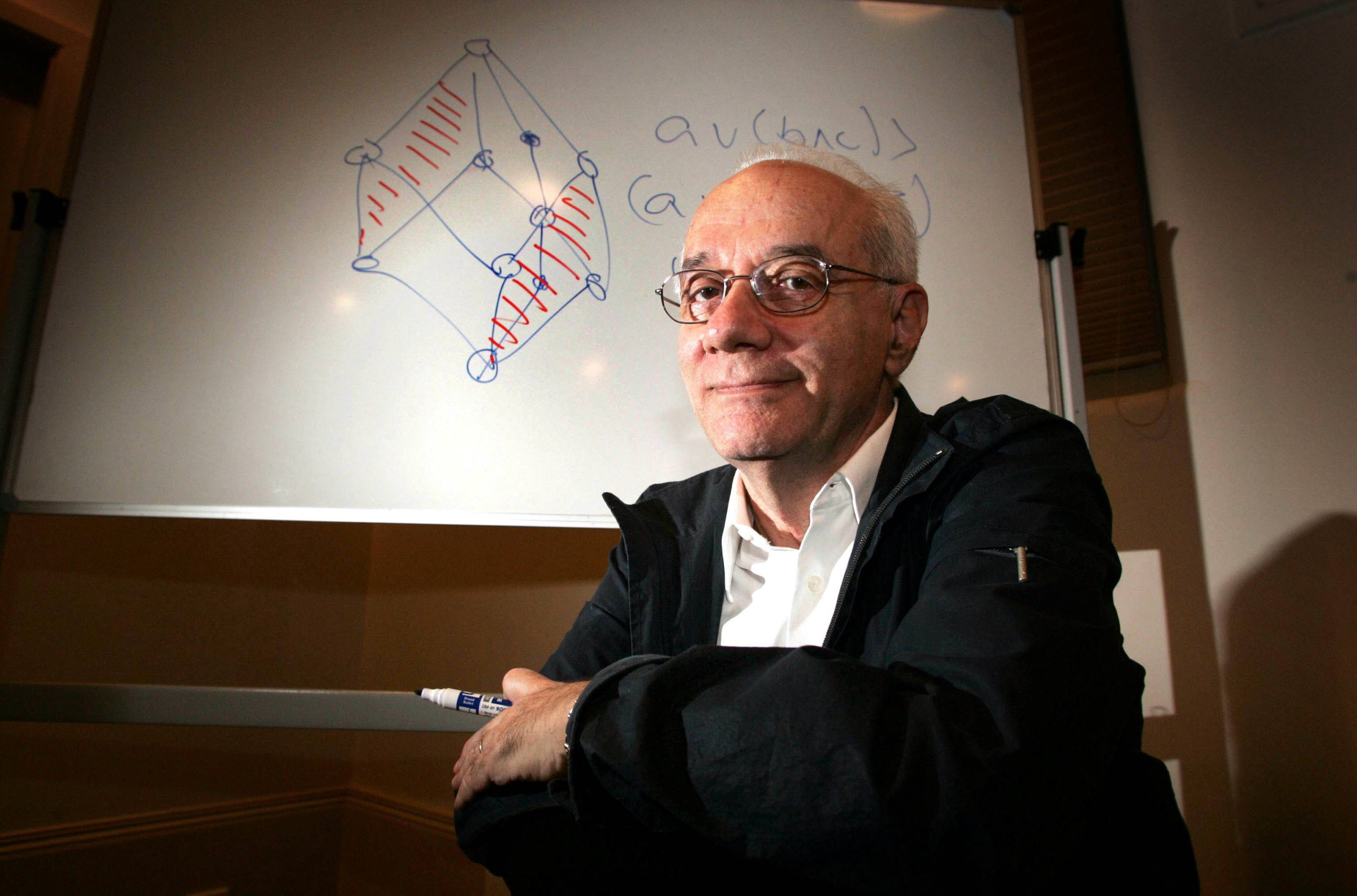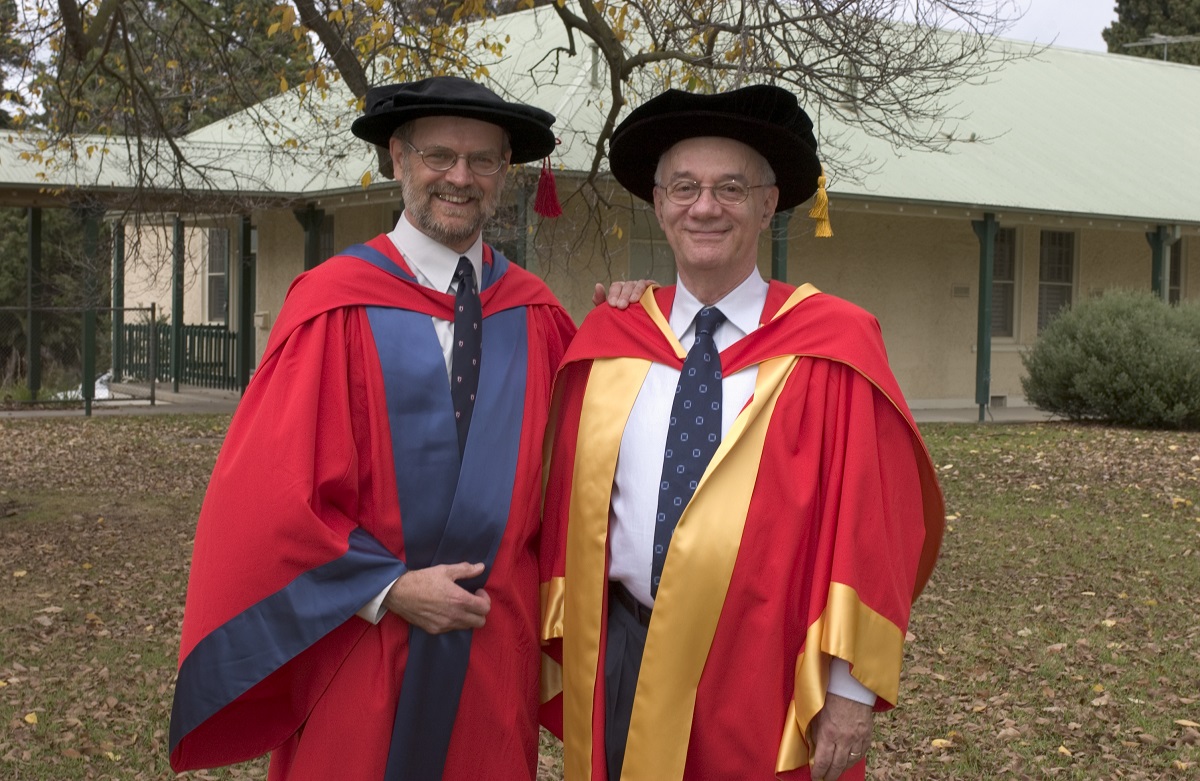At 86, mathematician George Gratzer has just finished his 31st book
By Iris Winston
When Dr. George Gratzer completed his 31st book last month, it marked the culmination of close to three quarters of a century of research in higher mathematics. Most people would consider this a satisfactory final achievement in a stellar career.
 But that is not the 86-year-old scholar’s way. After more than 18 months devoted to the third edition of The Congruences of a Finite Lattice, a Proof-by-picture Approach, he is ready to turn the page to work on new research pieces to add to the near-300 scholarly articles he has already had published in academic journals in his native Hungary and across North America.
But that is not the 86-year-old scholar’s way. After more than 18 months devoted to the third edition of The Congruences of a Finite Lattice, a Proof-by-picture Approach, he is ready to turn the page to work on new research pieces to add to the near-300 scholarly articles he has already had published in academic journals in his native Hungary and across North America.
“I don’t know whether there will be another book,” he says. “I put everything in this one, so research-wise, I am complete. I spent a year and a half on it, thinking about it 24 hours a day. Now, it’s gone and I can’t do anything more with it. I’m left with something like an empty-nest syndrome.”
“But,” he adds, “now I can work on some more articles. I fell behind while I was concentrating on the book.”

George’s achievements as a mathematician began early with numerous awards in competitions while he was still in high school, followed by many more during his years as a university undergraduate and then as a graduate student and post-doctoral fellow. The scholarly awards were often balanced by creating chess problems, which led to several top place finishes in international chess composition contests.
Through his academic career as a mathematics scholar, he specialized in a chapter of algebra called the lattice theory, eventually reaching the top of his profession on both sides of the Atlantic and being named a member of the Hungarian and Canadian Academies of Science.
He was already acclaimed as a scholar in his native country by 1956, when the Hungarian Revolution broke out. The uprising, which began as a spontaneous student protest against the government of the Hungarian People’s Republic and policies imposed by the Soviet Union, was crushed by troops from the USSR. Thousands were killed and close to 250,000 Hungarians fled the country.
“I decided not to leave Hungary at that time,” he says. “Although I was a university student, I had had a number of research papers published and was well-known in Hungary. It turned out to be a good decision.”
Seven years later, George came to Canada as a post-doctoral fellow at Queen’s University in Kingston. After returning to Hungary to fetch his wife, Catherine, the two left to build their lives in North America. His first position was as a visiting assistant professor at Pennsylvania State University. In just three years, he rose to become a full professor, an astonishing achievement in such a short time.
Then the couple moved to Canada, this time to Manitoba, where Catherine earned a Canadian degree in dentistry so she could continue the profession she had begun in Hungary. Meanwhile, George was to spend the rest of his career as a professor at the University of Manitoba in Winnipeg eventually with the prestigious honorific of Distinguished Professor. This was an acknowledgement of his continuing achievements in his field and his constantly growing list of publications and awards.
He also founded an academic journal, Algebra Universalis, focused on universal algebra and lattice theory, to present scholarly achievements in this area of higher mathematics.
“I chose the best researchers of the day in these related fields to form the editorial board and gave them complete control,” he says. “After 50 years, the journal is still flourishing.”
While his main focus was higher mathematics, he also published Train Your Brain, a book presenting “a year’s worth of puzzles” in mathematics and logical thought. This seems to be an interest he inherited from his father, Jozsef, who prepared puzzles for 150 newspapers in Hungary and was dubbed the puzzle king.
“Maybe that makes me a prince of puzzles,” jokes George, whose pride in all his family is front and centre as he talks about his older son, Thomas, a forensic psychiatrist, and his younger son, David, also a psychiatrist.
To be closer to David and his wife, Cheryl, a family doctor and Emergency Room specialist, George and Catherine moved from Winnipeg to Toronto a dozen years ago, after George retired and Catherine was no longer working in dentistry. Following surgery on her spine, Catherine has needed 24-hour care.
“We manage,” says George, noting that her live-in caregivers provide extremely good care and fine meals.
“We make sure that she has whatever she needs and is happy,” he adds, noting that his focus is to continue the close companionship they have enjoyed through more than 63 years of marriage.
“My son and daughter-in-law provide excellent medical care. We live a quiet life now and I still have time to work.”






